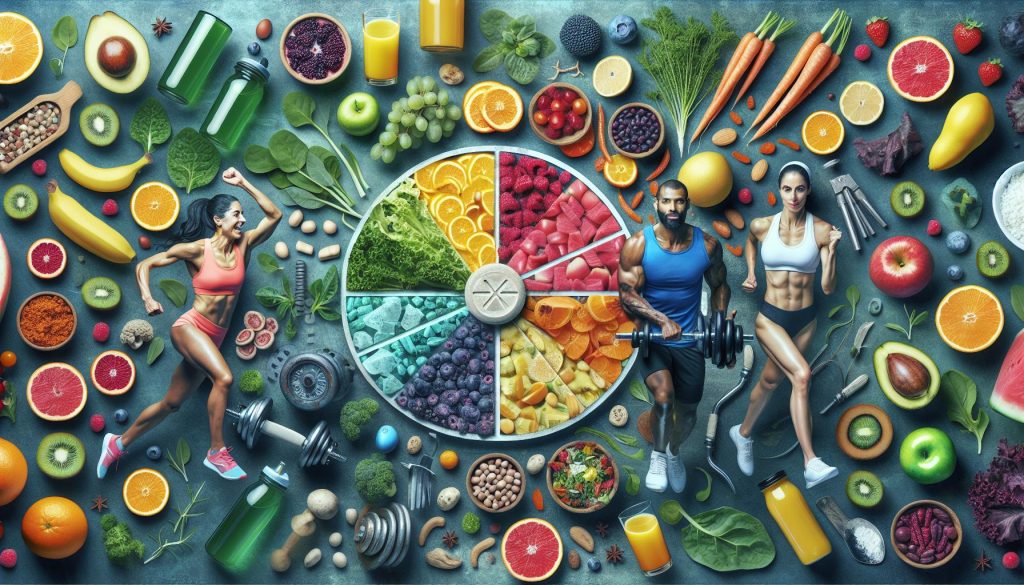
Introduction to the Power-packed Fuel for Athletes
So, what is the backbone of energy in an athlete’s diet? Put simply, it is a harmonious mix of primarily carbohydrates, with an added measure of proteins and a pinch of healthy fats. This triumvirate not only fuels the physical exertion required but also assists in recovery post-training. In our comprehensive dissection below, we will dive into the heart of this often-confusing arena, shedding light on the importance of each dietary element and providing clear-cut guidelines for ideal intake. In essence, we’ll rip the veil off the energizing diet secrets of top-notch athletes!
The Carb Connection: Fueling Performance
If energy provision were a theatrical production, carbohydrates would unquestionably have the starring role. These quick-energy providers are stored in our muscles and liver in the form of glycogen, and when it’s go time, our body taps this glycogen reserve to keep us moving. Even though different sports demand different types and amounts of energy, one constant remains essential: carbohydrates are key.
Timing is Vital
Taking timing into consideration, athletes should consume carbs pre-training to ensure adequate glycogen stores and post-training to replenish them. This carbohydrate chow-down, strategically executed, can give an athlete’s performance a significant leg up.
Protein’s Part: Building and Repairing Muscles
If carbohydrates are the stars, then proteins are the crucial supporting cast. Primarily renowned as the body’s building blocks, proteins play a pivotal role in muscle build-up and repair. Every time an athlete trains or competes, microscopic damage occurs to their muscles. Proteins, like tiny construction workers, rush to repair this damage, promoting strength and growth in the process.
Quality Over Quantity
What’s often overlooked is that quality trumps quantity when it comes to protein. Thriving on an array of high-quality, complete protein sources, as opposed to merely chomping down on enormous amounts, can enhance an athlete’s recovery and growth.
Fats: The Unsung Heroes
Last but not least, we have fats, the unsung heroes in the athlete’s diet. Despite being frequently demonized, healthy fats are integral to an athlete’s performance and overall health. They maintain hormonal balance, support the absorption of essential vitamins, and – when carbs run out – they take over as an energy source.
Bring on the Healthy Fats
However, not all fats are created equal. Athletes should prioritize monounsaturated and polyunsaturated fats – the good guys. These are found in foods like avocados, fatty fish, nuts, and seeds.
Wrapping Up the Athlete’s Energizing Diet
In conclusion, effective energy provision in an athlete’s diet hinges on a delicate balance of carbohydrates, proteins, and fats. Carbohydrates, the stars, provide immediate energy, proteins, the supporting cast, build and repair muscle, and fats, the unsung heroes, offer energy reserves and regulate essential processes. It’s imperative to remember that individual needs and specific sport requirements will generate slight variations in this dietary triad.
Frequently Asked Questions
1. What foods give athletes energy? Foods that give athletes energy primarily include whole grains, fruits, vegetables, lean proteins, nuts, and seeds. These foods provide the carbs, proteins, and fats that fuel athletes.
2. How many carbohydrates should an athlete consume? It varies based on the athlete’s weight, the intensity of the training, and the length of the workout or competition. In general, about 60% of an athlete’s daily caloric intake should come from carbohydrates.
3. What is the role of protein in an athlete’s diet? Protein helps athletes recover after tough workouts or competitions by repairing muscle damage. It also assists in promoting strength and muscle growth.
4. What is the importance of fats in an athlete’s diet? Healthy fats support the absorption of essential vitamins, maintain hormonal balance, and serve as an energy source when carbohydrate resources run low.
5. Are some fats better than others for athletes? Yes, monounsaturated and polyunsaturated fats – found in foods like avocados, oily fish, nuts, and seeds – are healthier and more beneficial to athletes than saturated and trans fats.



